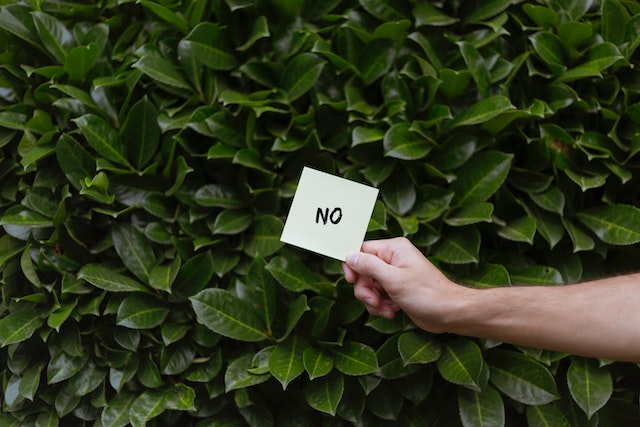In the world of TikTok and social media, it’s pretty common for people to use the words “I am so OCD” flippantly. However, in most cases, these ideas are riddled with gross generalizations and stereotypes.
OCD is not a personality quirk but a severe and rare mental condition that affects around 1 in 40 Americans. It leaves the affected person stuck in a vicious cycle of intrusive thoughts and compulsions that affect every aspect of their lives.
When we describe personality quirks as OCD or term it as something cute and likable, we make it harder for those who are actually dealing with the condition to ask for self. When we generalize OCD symptoms as obsessive cleaning or keeping things in order, we refuse to acknowledge the existence of a vast spectrum of other signs.
Therefore, the way we talk about OCD is important.
So, if you don’t have the condition, you can do a favor by learning what not to say to someone with OCD. It can not just make their lives easier but can also make people feel heard and seen.
To help you get started, we have compiled a list of what not to say to someone with OCD. It contains all the stereotypical phrases that people with OCD are tired of hearing. We’ll also help you figure out what to say instead of these phrases.
Let’s dive in.

What Not To Say To Someone With OCD
1. “Oh, you have OCD! I basically have it, too. I can’t tolerate any mess around myself.”
Here’s a newsflash – having OCD and basically having OCD are two significantly different things.
This is one of the worst things to say to anyone with OCD (or any health condition, for that matter). When you tell someone you have OCD, too, just because you like to keep your surroundings clean, you are basically invalidating their experiences and hardships. It is essential to understand that OCD is much more than just hating messiness. It’s a cycle of intrusive thoughts, anxiety, fear, and compulsions.
What to say instead:
“I’m here for you if you need to talk or if there’s anything I can do to help.”
Read more: You’re Not Just A Clean Freak: 9 Warning Signs Of OCD
2. “If you know you have OCD, why can’t you just stop it.”
This makes it to our list of what not to say to someone with OCD because it’s downright hurtful and insensitive. It simply implies that the person having OCD is deliberately acting irrationally or compulsively.
However, that’s as far from the truth as it can be.
People with OCD can’t choose to turn off their symptoms. It’s a real and serious disorder that arises due to genetic and environmental factors. And as much as someone would like, it’s also not under their control.
What to say instead:
“I understand that you’re struggling with OCD. It’s a difficult disorder to manage.”
3. “You don’t look like you have OCD.”
People with OCD don’t look or behave a certain way. When we bracket mental health disorders in a box of the most widely known symptoms, we refuse to see or even acknowledge the hardships of those whose symptoms exist outside that box.
All mental health disorders, including OCD, exist on a spectrum. And anyone, irrespective of their gender, age, ethnicity, or appearance, can be affected by them.
What to say instead:
“I’m here for you if you need to talk or if there’s anything I can do to help.”
4. “You are very controlling.”
This is another thing that you should never say to someone with OCD. It’s hurtful because it implies that people with OCD are deliberately controlling. It negates that it’s not their will but the intrusive thoughts that occur in their mind responsible for their behavior.
What to say instead:
“I know it’s not always easy, but you’re doing the best you can.”
Read more: What Is OCD? It’s Not As Quirky As Movies Tell You
5. “It’s so cool to have a disorder that makes you artistic and creative, right?”
While many actors or artists might have reported having OCD, it is essential to understand that there’s no link between OCD and creativity. Additionally, it can be a little insensitive to say you are jealous of something that has brought another person so much pain and discomfort.
Art and mental health are two different things. And people’s mental health doesn’t generally become a muse for their art.
What to say instead:
“I admire your strength and resilience.”
Conclusion:
It’s 2023, and though, as a society, we have made significant progress in our understanding of mental health, there’s a lot that still needs to be done. The key to all these changes is learning how to change the discourse around mental health conditions.
OCD, like all other mental health conditions, should be treated with compassion and like the serious disorder that it is. Millions of people worldwide who are affected by it deserve respect and a supportive environment to live a better life. We hope this list of things on what not to say to someone with OCD will help you get started.
Changing the discourse around other mental health conditions is just as important. Wondering what not to say to someone with ADHD? Find out here.
To continue learning about mental health daily, subscribe to Your Mental Health Pal.

